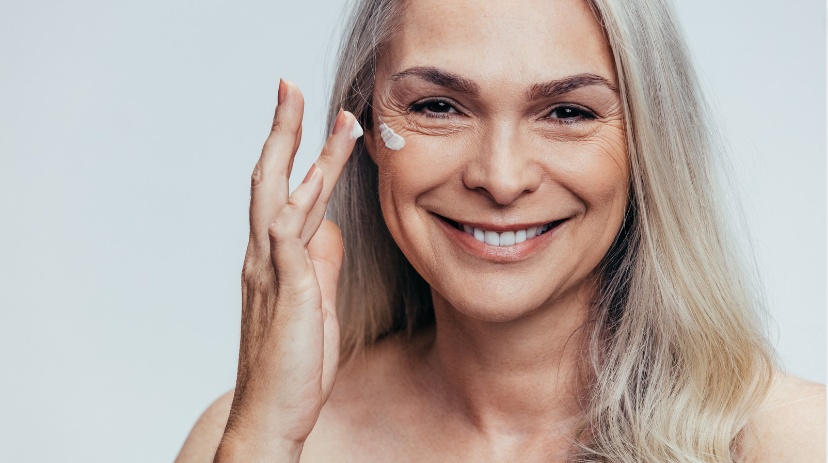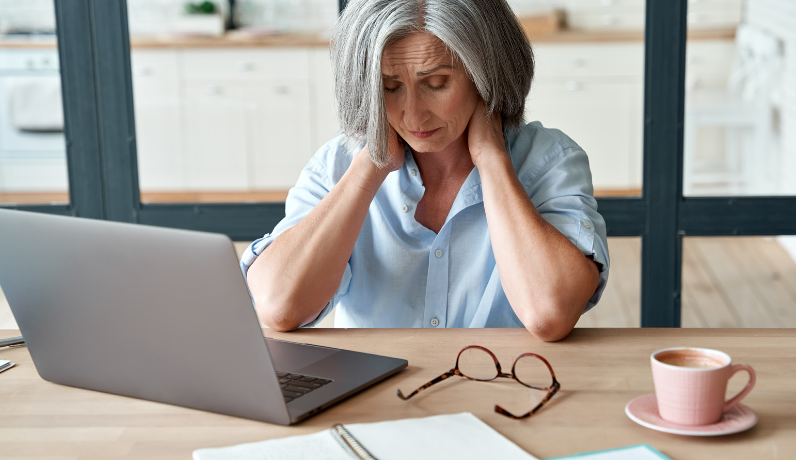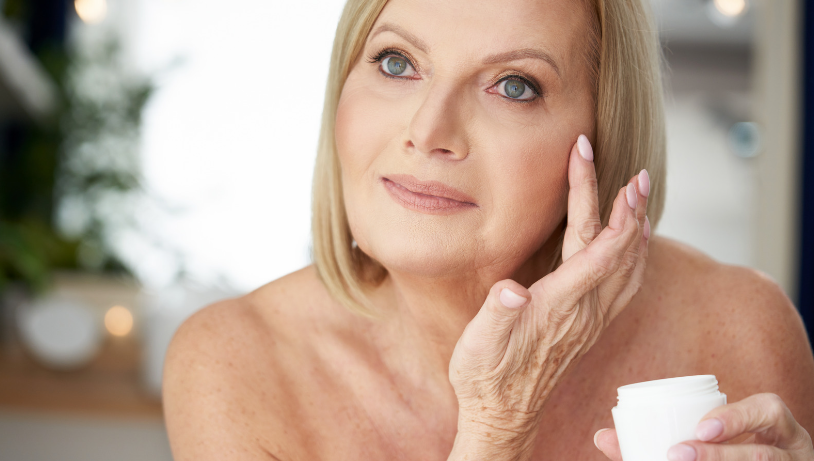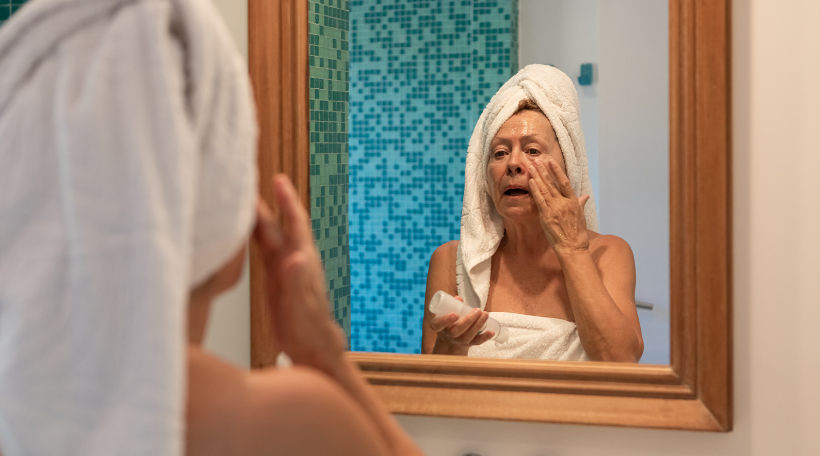Never Too Old for Breakouts: Causes of Acne in Senior

When we hear “acne,” many immediately think of teenagers and young adults. After all, it’s a common and often frustrating skin condition that tends to crop up during the adolescent years. However, acne doesn’t discriminate based on age – it can affect people of all ages, including seniors. Despite this, acne in senior is much less talked about compared to acne in younger age groups. This lack of attention can make it difficult for seniors to understand why they might be experiencing breakouts, let alone how to treat them.
This article aims to shed some light on the causes of adult acne, with a focus on seniors. We’ll explore the basics of acne and delve into the specific factors that can contribute to breakouts in later years. We’ll also share some tips for preventing and managing acne as a senior. By the end, we hope you’ll better understand this skin condition and its unique challenges for seniors.
Understanding Acne in Seniors
Acne is often mistaken as a skin problem that only plagues teenagers, but the reality is that it can occur in individuals of any age, including seniors. Despite this common misconception, acne is a prevalent issue among the elderly.
Senior acne, often referred to as “adult-onset acne” or “late-life acne,” is a skin condition that affects individuals in their senior years, typically aged 50 and above. It is typically characterized by pimples, blackheads, and whiteheads on the face, neck, chest, and back. It can also manifest in the form of painful cysts or nodules. Unlike adolescent acne, commonly associated with puberty and hormonal fluctuations, senior acne arises from different aging factors.
Impact of Acne on Seniors’ Physical and Emotional Health

The presence of acne can have a profound and multifaceted impact on seniors’ physical and emotional well-being. Here’s how senior acne affects them:
Physically
- Discomfort: Acne breakouts can cause physical discomfort, with painful and tender spots on the skin, especially if the lesions become inflamed or infected.
- Itching: Seniors may experience itching and irritation, making it tempting to scratch or pick at the affected areas, which can worsen the condition.
- Inflammation: The presence of acne can lead to redness and swelling, further contributing to physical discomfort.
- Scarring and skin damage: Prolonged or severe acne can result in scarring, which may be more challenging for older skin to heal effectively.
Emotionally:
- A decline in self-esteem: The visible nature of acne can take a toll on seniors’ self-esteem, as they may feel self-conscious about their appearance.
- Reduced confidence: Acne can lead to decreased confidence, impacting seniors’ social interactions and overall quality of life.
- Emotional distress: Dealing with acne in their senior years can be distressing, as it may remind them of past struggles with acne or give the impression of regressing to a younger age.
Addressing senior acne’s physical and emotional impact is essential to support seniors in maintaining their well-being and overall happiness. By understanding the challenges they face, healthcare providers and loved ones can offer appropriate care and guidance to improve seniors’ skin health and self-assurance in their golden years.
Causes of Acne in Seniors

As caregivers for the elderly and seniors seeking to understand their changing skin, it’s important to recognize that acne can affect people of all ages, including the senior population. In this section, we explore the contributing factors that can lead to acne in older adults, shedding light on the complexities of this skin condition.
1. Hormonal Imbalances
While hormone levels generally decrease with age, hormonal imbalances can still occur in seniors and contribute to acne breakouts. Fluctuating hormone levels can stimulate the sebaceous glands to produce excess sebum, leading to clogged pores and the development of acne.
2. Changes in Skin Composition
Aging skin undergoes various changes, including thinning and increased dryness. This can disrupt the skin’s natural protective barrier, making it more susceptible to irritation and acne. Seniors may also experience slower skin cell turnover, leading to a buildup of dead skin cells that can clog pores and contribute to acne formation.
3. Medication Side Effects
Some medications commonly prescribed to seniors can have acne as a side effect. Corticosteroids, anticonvulsants, and certain hormonal treatments may disrupt the skin’s balance and trigger acne breakouts. If you suspect your medication is causing acne, consult a doctor to explore alternative options or dosage adjustments.
4. Dietary Factors
While the link between diet and acne is still being studied, some studies suggest that certain foods may contribute to acne breakouts. In particular, high-glycemic index foods and dairy products have been associated with acne in some people. Seniors may benefit from adopting a balanced, low-glycemic diet and reducing their consumption of potential acne-triggering foods.
5. Stress
Stress can affect hormone levels and lead to increased acne breakouts. Seniors who experience chronic stress or sudden changes, like retirement or the loss of a loved one, may develop acne.
6. Hair and Skincare Products
Using hair and skincare products that contain harsh chemicals or oils can clog pores and contribute to acne formation. Seniors should consider using non-comedogenic products specifically formulated for oily or acne-prone skin.
Prevention and Skincare Tips for Seniors

Prevention is paramount when caring for seniors and ensuring optimal skin health. As we age, the skin undergoes changes, making it more susceptible to acne and other skin issues. To help seniors maintain a radiant and healthy complexion, here are some essential skincare tips tailored to their needs.
- Gentle Cleansing: Encourage seniors to use mild, soap-free cleansers that will not strip the skin of its natural oils. Cleansing twice daily can help remove impurities without causing irritation.
- Moisturization: Aging skin tends to be drier, so promoting regular moisturization is crucial. Look for moisturizers containing hyaluronic acid and ceramides, which help retain moisture and strengthen the skin’s barrier.
- Sun Protection: Sunscreen is a must! Advise seniors to use a broad-spectrum sunscreen with at least SPF 30 every day, even on cloudy days, to safeguard their delicate skin from harmful UV rays.
- Non-Comedogenic Products: Opt for non-comedogenic and fragrance-free skincare products to reduce the risk of clogged pores and potential acne flare-ups.
- Balanced Nutrition: A well-rounded diet rich in vegetables, fruits, and omega-3 fatty acids can promote skin health and well-being.
- Stress Management: Encourage seniors to engage in stress-reducing activities like meditation, yoga, or hobbies they enjoy, as stress can exacerbate skin conditions.
- Hydration: Drinking plenty of water helps maintain skin hydration and aids in flushing out toxins.
- Avoid Excessive Touching: Advise against touching or picking at acne-prone areas, as it can worsen inflammation and scarring.
By following these skin care tips and adopting a proactive approach, seniors can enjoy healthy, glowing skin that enhances their confidence and overall quality of life. As caregivers, let’s ensure they receive the best possible care for their skin, empowering them to embrace the golden years with radiance and grace.
Identifying and Managing Acne in Seniors

If it so happens your loved one is showing signs of acne in their senior years, fret not! Identifying and managing acne in seniors is crucial to their skin health and overall well-being. Here are some essential steps to help you navigate this process with care and effectiveness.
1. Identifying Acne in Seniors
Acne in seniors may present itself differently than in younger individuals. Look out for the following signs:
- Persistent breakouts: If your loved one is experiencing consistent acne flare-ups or new breakouts, it could be a sign of acne.
- Red, inflamed bumps: Acne in seniors commonly appears as red, inflamed bumps on the face, chest, or back.
- Pain or discomfort: If your loved one complains about pain or discomfort accompanying their acne, it’s important to address it promptly.
2. Face Cleansers or Creams:
Using gentle face cleansers or creams can help manage acne in seniors. Look for products formulated for mature skin and containing acne-fighting ingredients like benzoyl peroxide. These products help unclog pores and reduce inflammation.
3. Adjust Lifestyle
Encourage your loved one to adopt a healthy lifestyle to manage their acne. It includes maintaining a balanced diet, staying hydrated, getting enough sleep, and managing stress. These lifestyle changes can help reduce the severity of acne breakouts.
4. Avoid Triggers
Help your loved one identify and avoid triggers that may worsen their acne, such as certain foods, harsh chemicals, specific medications, and excessive touching of the face. By avoiding these triggers, you can help minimize the occurrence of acne breakouts.
5. Seek Professional Advice
If over-the-counter products or lifestyle changes are not effectively managing your loved one’s acne, it may be time to seek professional advice. A dermatologist for seniors can provide personalized treatment options and recommendations based on the individual’s skin type and condition.
Final Thoughts
It is of utmost importance to promptly recognize and address acne in seniors, seeking professional help and adopting a proactive approach to managing their skin health. Acne in older adults can have physical discomfort and emotional effects, underscoring the need for timely intervention and personalized care.
For seniors who may face challenges in self-care due to acne and other health conditions, the role of professional caregivers becomes indispensable. Serenity Senior Care understands the unique needs of elderly individuals dealing with acne and offers compassionate support to ensure their skin health is well-managed. With the combined efforts of caregivers, healthcare providers, and family members, seniors can enjoy improved skin health and a better quality of life in their golden years.


